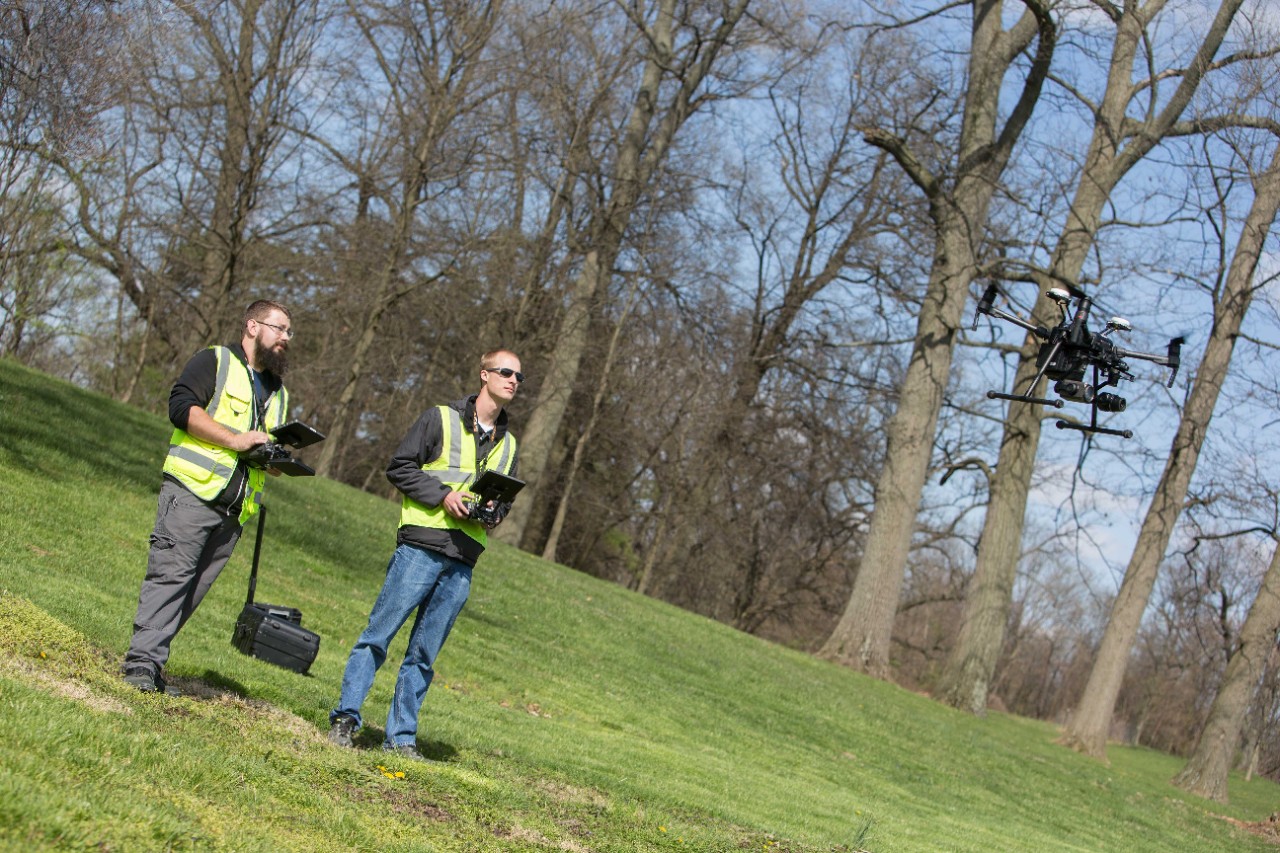
WVXU: How drones can slow spread of COVID-19
UC aerospace engineer says drones are showing up in novel applications
Cincinnati Public Radio's WVXU talked to University of Cincinnati aerospace engineering professor Kelly Cohen about the novel ways drones are being deployed during the coronavirus pandemic.
Cohen, the interim head of UC's Department of Aerospace Engineering and Engineering Mechanics, told WVXU that unmanned aerial vehicles, or UAVs, can deliver medical supplies, antibody tests, vaccines or personal protective equipment safely without risk of spreading infection.
Cohen oversees the UAV Master Lab in UC's College of Engineering and Applied Science, where researchers are developing automated navigation systems using artificial intelligence. UC is developing new drone applications to respond to a disaster, conduct inspections and manage a crisis.
UC is working with the U.S. Air Force Research Lab, among other partners, to coordinate swarms of drones that work in tandem for search and rescue and other uses.
"There's a lot of activity happening. We have a very strong team of staff and very excited and motivated students," Cohen told WVXU.
Featured image at top: UC research associate Bryan Brown, left, and UC student Austin Wessels operate a drone in this 2018 photo. UC collaborated with the Ohio Department of Transportation on a traffic-management project. Photo/Andrew Higley/UC Creative + Brand
More UC drone research

Photo/Andrew Higley/UC Creative + Brand
Impact Lives Here
The University of Cincinnati is leading public urban universities into a new era of innovation and impact. Our faculty, staff and students are saving lives, changing outcomes and bending the future in our city's direction. Next Lives Here.
Stay up on all UC's COVID-19 stories, read more #UCtheGood content, or take a UC virtual visit and begin picturing yourself at an institution that inspires incredible stories.
Related Stories
Two College Credit Plus high school students receive bachelor’s...
May 4, 2025
Two high school students received bachelor's degrees at the University of Cincinnati's Spring Commencement. Caden Elrod, a senior at Walnut Hills High School in Cincinnati, and Sai Gollamudi, a senior at Centerville High School in Centerville, receive their degrees while also completing their diplomas. They are first high school students in UC's College Credit Plus Program to earn bachelor's degrees.
UC engineering students recognized for achievement in...
May 1, 2025
Sixteen UC engineering students were honored for outstanding achievement in cooperative education at the close of the 2024-2025 school year.
Everything you need to know about scents and your hair
May 1, 2025
The University of Cincinnati's Kelly Dobos was featured in an NBC News article discussing the science behind hair fragrances and shampoos.
